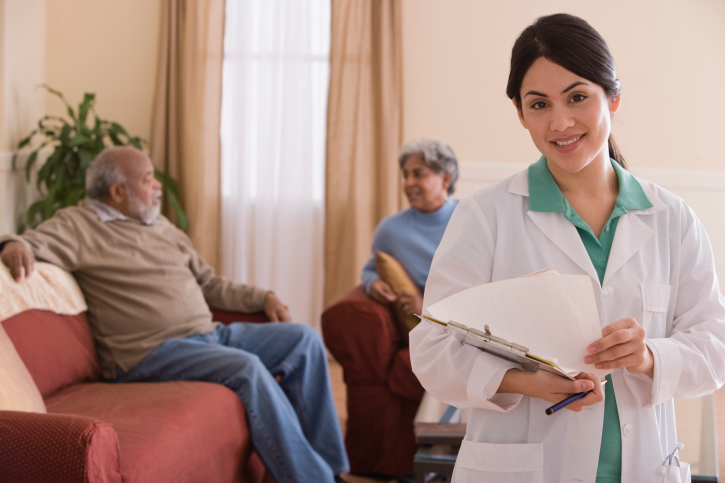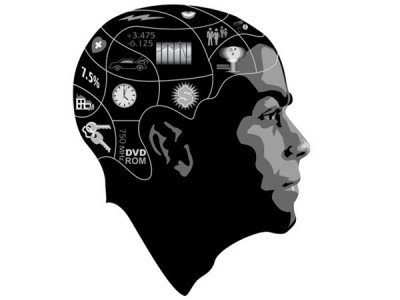Depression & Diabetes
People with diabetes have about twice the rate of clinical depression than those without diabetes. And depression seems to hit people with diabetes with a double-whammy: They take more days off from work and report a much poorer sense of everyday well-being and health than people with either depression alone or diabetes alone.
The fear of getting diabetes complications or living with them once they appear increases the risk for depression. The anger or guilt related to complications can cause a person to become depressed if he or she does not express these feelings and learn to cope with them. Also,people who are depressed have a harder time caring for their diabetes. It is more of a struggle to pay attention to your diet and be active when you are clinically depressed.
Types Of Depression
There are several different types of depression, but the two main types are dysthymic disorder and clinical depression:
Dysthymic disorder, or dysthymia, is a very mild form of depression that lasts for at least two years. Symptoms include poor appetite or overeating, difficulty sleeping or oversleeping, low energy, fatigue, and feelings of hopelessness. Because this form of depression is so mild, family members or even the person affected with it may not realize it is there. Its symptoms may not be obvious, but can still make it hard to function.
Clinical depression occurs when a person feels so depressed that he or she loses interest or pleasure in daily activities. These feelings last for at least two weeks. The mood change must be severe enough to disrupt your usual tasks at work, home or school. Other symptoms include significant weight loss or gain or change in appetite, loss of energy, difficulty falling or staying asleep or sleeping more than usual, trouble concentrating, feelings of worthlessness or guilt, and thoughts of suicide.
How Do You Know If You Are Depressed?
The diagnosis of depression is based on your symptoms. You may be asked to fill out a questionnaire or be asked several questions by your health care provider. There are also a wide variety of self-tests for depression that give you an idea if you need further screening by a health professional.
What Helps Depression?
A lot of people think they should just be able to handle clinical depression on their own. There are many things you can do to cope better with the burden of diabetes, but clinical depression is an illness, just like diabetes or asthma. Telling yourself (or having others tell you) to “snap out of it” or “cheer up” is not usually helpful. For most people, clinical depression doesn’t get better without treatment. The good news is that help is available. Medicine can work and so can counseling. Research shows that combining counseling and medicine works best.
One form of counseling that works well is called cognitive behavioral therapy, or CBT. CBT is based on the idea that it is our thoughts that cause our feelings and behaviors, not external things like people, situations and events. CBT can help you change the way you think so you feel better, even if your situation does not change. You can learn to think differently about having diabetes, even though it doesn’t go away. One of the great things about CBT is that it doesn’t take years of therapy to enjoy its benefits. Real improvement can happen with 14 to 16 sessions, plus homework between visits.
If you believe you may be depressed, a good place to begin your search for a mental health counselor is to talk with your diabetes health care team. Ask if they know someone who works with people who have diabetes and understands the issues you face. You also need to check with your health insurance company to see if there are any therapists in your network.
Before You Go
Before you schedule a session with a mental health counselor, consider asking the following questions to make sure the counselor is a good fit for you:
- Are you licensed in this state?
- What insurances do you accept?
- Do you prescribe medicines as part of your treatment?
- Do you work with people who have diabetes?
- What should I do to prepare for my first visit?
- What style or method of therapy do you use?
Activity IQ Quiz
Physical activity provides many health benefits if you have diabetes and/or heart disease. In fact, being active can help prevent both of these diseases. Check your activity IQ with the following quiz. Answer true or false to the questions below, then read on to see the answers.
QUESTIONS
- Regular physical activity can reduce my chances of getting both diabetes and heart disease.
- Most people get enough physical activity from their normal daily routines.
- I don’t have to train like a marathon runner to become physically fit.
- Physical activity doesn’t have to take a lot of time for me to benefit from it.
- Only those who need to lose weight will benefit from regular physical activity.
- Physical activity can help me maintain my weight loss better than it can help me lose the weight in the first place.
- People who have diabetes and are on medication that can cause low blood glucose should take some precautions when they do physical activity.
- Most people injure themselves when they exercise.
- I should consult with my health care provider before I start a physical activity program.
ANSWERS
- TRUE. Research shows that people who are not active are almost twice as likely to get heart disease. Also, those who are not active are more likely to get type 2 diabetes.
- FALSE. Most Americans are very busy, but being busy doesn’t mean that you get enough physical activity. Most Americans don’t. Every American adult should get a total of 30 minutes of physical activity each day. That means it can be 10 minutes here and 10 minutes there, or a 15-minute walk and 15 minutes in your garden, or playing basketball or catch with your children or grandchildren. If you are not active now, get started by doing a few minutes of activity each day. Choose activities that you enjoy, and don’t strain yourself, particularly when you are just starting out.
- TRUE. Activities, such as leisure walking, stair climbing, housework, dancing, gardening or using an exercise videotape are terrific forms of physical activity. They can have both short- and long-term benefits. If you are inactive, your first step is to get started now.
- TRUE. It takes only a few minutes a day to become more physically active. If you don’t have 30 minutes in your schedule for an exercise break, try to find two 15-minute periods or even three 10-minute periods. Start with a few things that are easy for you to do, such as taking a walk for 10 or 15 minutes during your lunch break or parking your car at the far end of the parking lot to get an extra five minutes of activity.
- FALSE. Whether your goal is to stay at your current weight or to lose weight, everyone can benefit from physical activity. Besides burning extra calories, regular physical activity gives you more energy, tones your muscles, helps your heart and lungs work better, reduces stress, and helps you sleep better. This is true for people at any weight.
- TRUE. While it is certainly important for you to be physically active while you are losing weight, research shows that physical activity is even more important to help keep the weight off. So, don’t stop being physically active once you reach your weight loss goal. This is actually the time to try even harder to get at least 30 minutes of physical activity every day. Being physically active gives you the best chance of keeping that weight off.
- TRUE. Some diabetes medications can cause blood glucose to drop too low if you are more physically active than usual and don’t eat enough food to raise your blood glucose. This is true if you take insulin or certain types of diabetes pills that may cause low blood glucose. . If your blood glucose is at or less than 100 mg/dL before you are active, you should eat or drink some carbohydrate. Try a piece of fruit, a few crackers or eight ounces of milk. If you will be active for a long time, you may want to carry some food with you. You should also check your blood glucose after you exercise. Your body burns off more calories and continues to lower your blood glucose even after you finish your activity. If you regularly have low blood glucose after you exercise, talk with your healthcare provider.
- FALSE. Most people benefit from and enjoy physical activity. But the most common risk in exercising is injury to the muscles and joints. This is usually caused by exercising too hard for too long, particularly if a person has been inactive for a while. To avoid injuries, try to build up your level of activity slowly and listen to your body for warning signs, like pain. You should also be aware of possible signs of heart problems, such as pain or pressure in the left- or mid chest area, left-neck, left shoulder or left arm during or just after exercising. Sudden light-headedness, cold sweats or fainting are other signs of a possible heart problem.
- TRUE. Get an OK from your health care provider before you begin (or greatly increase) your physical activity. Your provider will want to review your medical history and do a physical exam, which will focus on the health of your heart and blood vessels, eyes, kidneys, feet and nervous system.













